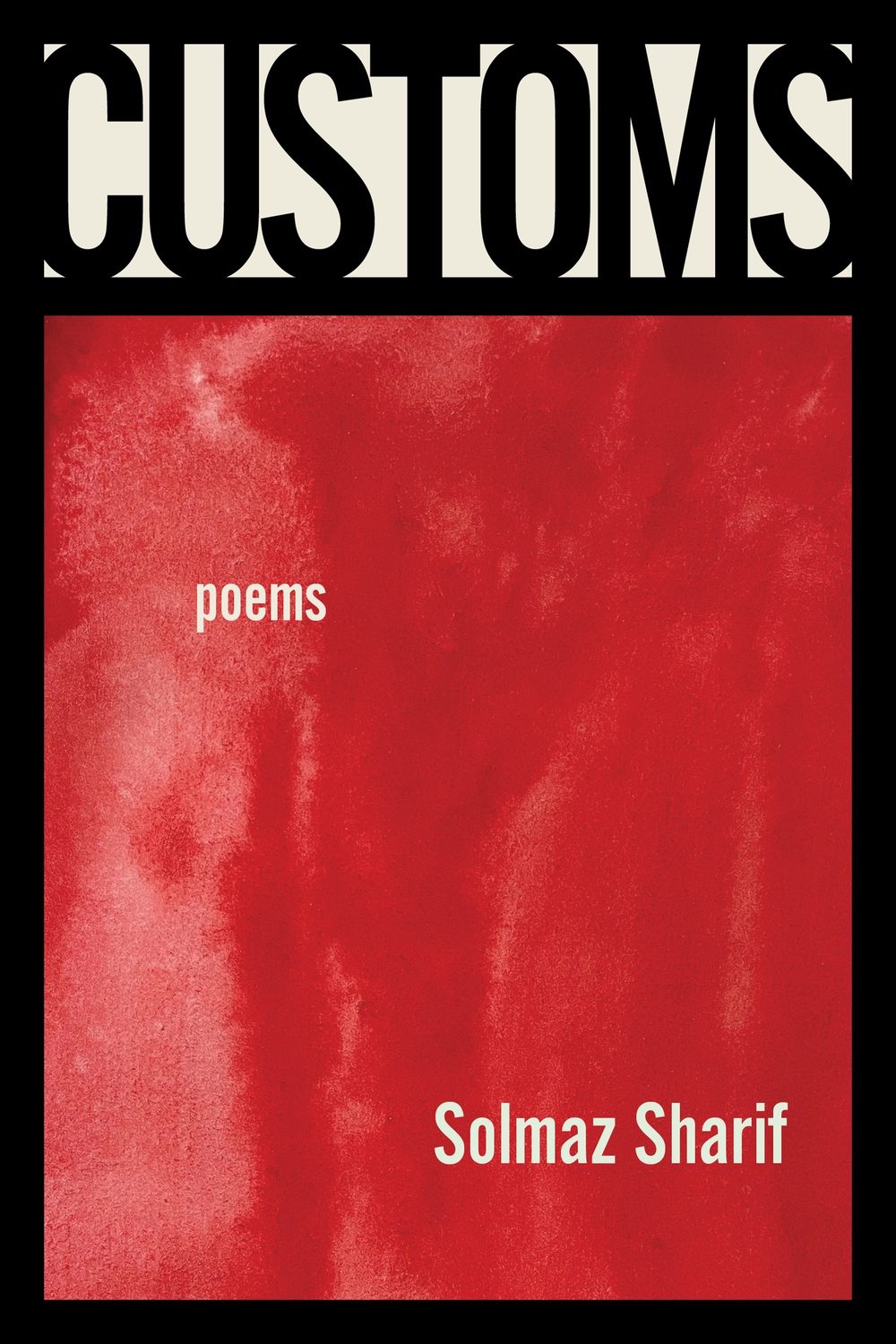
News
Summers Will Not Finish Semester of Teaching as Harvard Investigates Epstein Ties

News
Harvard College Students Report Favoring Divestment from Israel in HUA Survey

News
‘He Should Resign’: Harvard Undergrads Take Hard Line Against Summers Over Epstein Scandal

News
Harvard To Launch New Investigation Into Epstein’s Ties to Summers, Other University Affiliates

News
Harvard Students To Vote on Divestment From Israel in Inaugural HUA Election Survey
‘Customs’ Review: Examining Immigrant Adversity through Complicated Verse
3 Stars

What happens when a person leaves a place but never arrives at their destination? What happens when an immigrant leaves their entire country and family behind only to immigrate to a culture with no aligning values, and seemingly no sense of connection or acceptance?
In “Customs,” Solmaz Sharif examines the American immigrant experience: “to exist in the nowhere of the arrival terminal” — to completely leave one’s people and home behind, but never arrive at an accepting culture. Born to Iranian parents, Solmaz Sharif uses poetry to address the stark difference between her identity and American culture, and what it means to live in the no-man’s land between two different cultures.
A large portion of the collection highlights Sharif’s culture shock when experiencing American materialism and her disillusionment with its glorification of war, obsession with innovation, and tendency to exclude. In a poem entitled “Planetarium,” Sharif describes her trip to Joshua Tree, awes at the explosive testing at a distant air force base reminiscent of shooting stars, and meditates on the glorification and beauty that America can find in war.
“Now What,” one of the first poems of “Customs,” explains the American discontentment and constant need for innovation and materialistic gratification: “On Instagram: a man / has bought a ten-foot-by-four- / foot photo of a bridge / he lives / beside, bridge he can see just outside / his window, window which serves / as a ten-foot-by-four- / foot frame”
America isn’t the land of the free, writes Sharif — even for those who can make it across the wall. The central theme of the work focuses on displacement and a lack of acceptance from a culture so often advertised as a melting pot. Sharif refers to America as a “kingdom,” one in which immigrants live on the edge. Further than physical exclusion, however, Sharif suggests that there may be an even more painful, less physical exclusion — a cultural shunning from within. In “Without Witch,” Sharif writes, “I am without the kingdom / And thus of it. / I am– / even when inside the kingdom– / without”.
While the speaker finds herself physically living in America, she laments the common, immigrant truth of never experiencing cultural acceptance. And, if her writing centers around her immigration experience, the very structure of the poetry confirms the incessant identity battle of immigrants. The very last stanza of the poem cuts mid-sentence as if the story portrayed through this poem is ongoing, never finished — just as her life in between cultures will still remain.
The style of the poetry itself reads as if looking into the inner thoughts of the speaker; the ideas themselves are profound and enlighten the immigrant struggle, though the fragmented stanzas and structure often disrupt the reading flow and the overarching message. The combination of prose and fragmented poetry may make this piece of poetry inaccessible to the average reader.
Though it may be tough to understand at first glance, “Customs” gives the reader the opportunity to empathize with a speaker deeply troubled by the immigrant experience. By sharing her experience, Sharif looks to reshape the way readers think about America's relationship with other cultures and calls for change in the way that America accepts difference. It’s only right that a piece entitled “Customs” has so much to declare.
Want to keep up with breaking news? Subscribe to our email newsletter.
